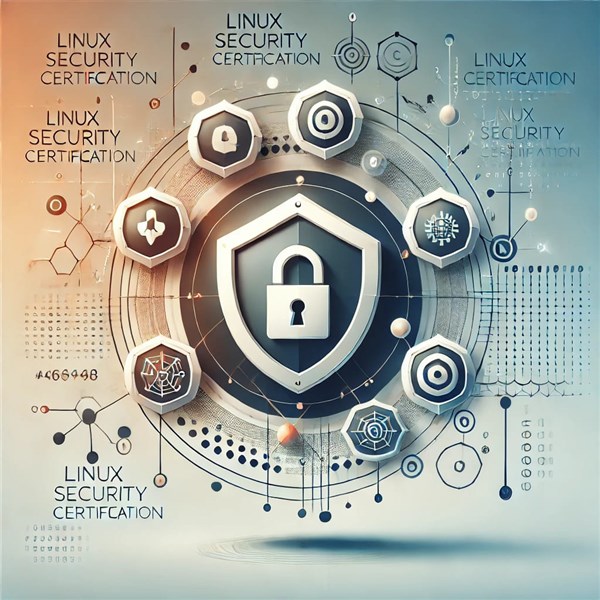
In today’s interconnected world, cybersecurity threats are more complex and frequent than ever before. From ransomware attacks to data breaches, organizations face a wide range of cyber risks that can have devastating financial and reputational consequences. As cybercriminals become increasingly sophisticated, it’s essential that cybersecurity professionals are equipped with the right tools and expertise to defend against these threats. Among the most valuable skills in this field is Linux security expertise.
Linux, as the backbone of many critical systems, including servers, cloud environments, and embedded devices, plays a vital role in modern IT infrastructure. Understanding how to secure Linux systems is a critical skill for anyone in the cybersecurity field. One of the most effective ways to gain this expertise is by obtaining a Linux security certification. In this blog, we’ll explore why Linux security certification is essential in today’s cybersecurity landscape and how it can empower professionals to combat the latest cyber threats.
The Growing Role of Linux in Cybersecurity
Linux is a powerful open-source operating system that is widely used in enterprise environments, cloud infrastructure, and on servers. Many of the world’s most significant internet services, including websites, social networks, and online platforms, are powered by Linux-based servers. Additionally, Linux plays an important role in modern IT, including DevOps, containerization, and cloud computing.
Despite its many advantages, Linux can also be a target for cybercriminals. The open-source nature of Linux means that vulnerabilities are often discovered and patched quickly. However, if systems are not properly configured or updated, they remain vulnerable to attack. Linux administrators and cybersecurity professionals need specialized skills to identify and mitigate these threats.
Given the widespread use of Linux and its potential vulnerabilities, gaining Linux security expertise is crucial for cybersecurity professionals. This expertise is best achieved through formal training and certification programs, which provide individuals with the knowledge and skills needed to secure Linux systems and defend against modern cyber threats.
Key Reasons Why Linux Security Certification is Essential
1. Linux Powers Critical Infrastructure
As mentioned earlier, Linux is the operating system of choice for many servers, cloud environments, and networking devices. It is the foundation of critical infrastructure, including databases, enterprise applications, and web servers. With the growing reliance on Linux-based systems, understanding how to secure these systems is more important than ever. Linux security certification helps professionals develop the skills to safeguard these essential systems against evolving threats.
A breach in a Linux-powered server can lead to devastating consequences, including unauthorized access to sensitive data, financial losses, and reputation damage. With proper Linux security training, professionals can help prevent and respond to these attacks effectively, ensuring the integrity of their organization's infrastructure.
2. Protection Against Ransomware and Malware
Linux systems are not immune to malware and ransomware attacks, which have become an increasingly common threat in recent years. Cybercriminals are known to target Linux servers, especially those with weak configurations or outdated software. In a ransomware attack, attackers can encrypt critical data and demand a ransom for its release. In some cases, attackers also steal data and threaten to release it unless the victim pays.
Linux security certification teaches professionals how to defend against such attacks by implementing strong access controls, regularly patching vulnerabilities, and securing data backup processes. By learning the techniques for hardening Linux systems, cybersecurity experts can better protect their organizations from ransomware and malware threats.
3. Enhanced Ability to Secure Cloud Environments
As cloud computing continues to grow in popularity, securing cloud-based environments has become a top priority for organizations. Many cloud service providers, such as AWS, Google Cloud, and Microsoft Azure, use Linux-based virtual machines (VMs) for running applications and services. Securing these Linux-based cloud environments is essential for preventing unauthorized access and ensuring the confidentiality of cloud-hosted data.
A Linux security certification provides professionals with the skills necessary to secure cloud-based Linux systems. Topics covered in these certifications include configuring firewalls, using encryption techniques, managing user access, and applying security patches. These are critical skills for anyone working in cloud security, as they help ensure the safety and privacy of data stored in the cloud.
4. Linux Security Certification is Highly Respected in the Cybersecurity Industry
Linux security certifications are highly regarded in the cybersecurity field. Certifications like CompTIA Linux+, Certified Information Systems Security Professional (CISSP), and Certified Linux Security Administrator (CLSA) provide a standardized way to demonstrate expertise in Linux security. Employers value these certifications because they validate the knowledge and skills of candidates, ensuring they are capable of effectively securing Linux-based systems.
For professionals seeking to advance their careers in cybersecurity, Linux security certification is an investment that can open doors to more job opportunities and higher-paying roles. Many companies require certification to ensure that their security teams have the necessary expertise to protect their critical infrastructure.
5. Combatting Insider Threats
In addition to external attacks, insider threats represent a significant risk to organizations. Insider threats can come from disgruntled employees, contractors, or anyone who has access to sensitive information or systems. These threats are especially dangerous because insiders often have privileged access to critical systems, including Linux-based servers.
Linux security certification provides professionals with the tools to mitigate insider threats by implementing strict user access controls, monitoring system activity, and auditing logs for suspicious behavior. By learning how to detect and prevent malicious activities within Linux environments, cybersecurity experts can reduce the risk of insider attacks.
6. Keeping Up with Evolving Threats
The cybersecurity landscape is constantly evolving, with new threats and attack techniques emerging every day. Linux security professionals need to stay ahead of these developments by continually updating their knowledge and skills. Linux security certification programs are designed to keep professionals up-to-date with the latest security trends, tools, and best practices.
A key benefit of pursuing a Linux security certification is gaining access to up-to-date training that addresses current and emerging threats. These programs often include hands-on labs and exercises that simulate real-world attack scenarios, allowing professionals to apply their knowledge in practical situations.
Conclusion
Linux security is a vital component of any comprehensive cybersecurity strategy. As Linux continues to power critical systems, data centers, and cloud environments, the need for skilled professionals to secure these systems is growing rapidly. Linux security certification equips cybersecurity experts with the knowledge and skills necessary to protect these systems from modern cyber threats, including malware, ransomware, and insider attacks.
Whether you are just starting your career in cybersecurity or looking to specialize in Linux security, obtaining a Linux security certification is an excellent way to advance your skills, gain industry recognition, and boost your career prospects. With cyber threats becoming more sophisticated, having expertise in securing Linux environments is essential for anyone serious about a career in cybersecurity.
By investing in a Linux security certification, you not only enhance your technical abilities but also position yourself as a critical asset in defending against today’s most pressing cybersecurity challenges.
Koenig Solutions, a leading IT training company, offers comprehensive Linux Security Certification training. With a curriculum designed by industry experts, Koenig ensures that you get hands-on experience to tackle real-world cybersecurity challenges.







COMMENT